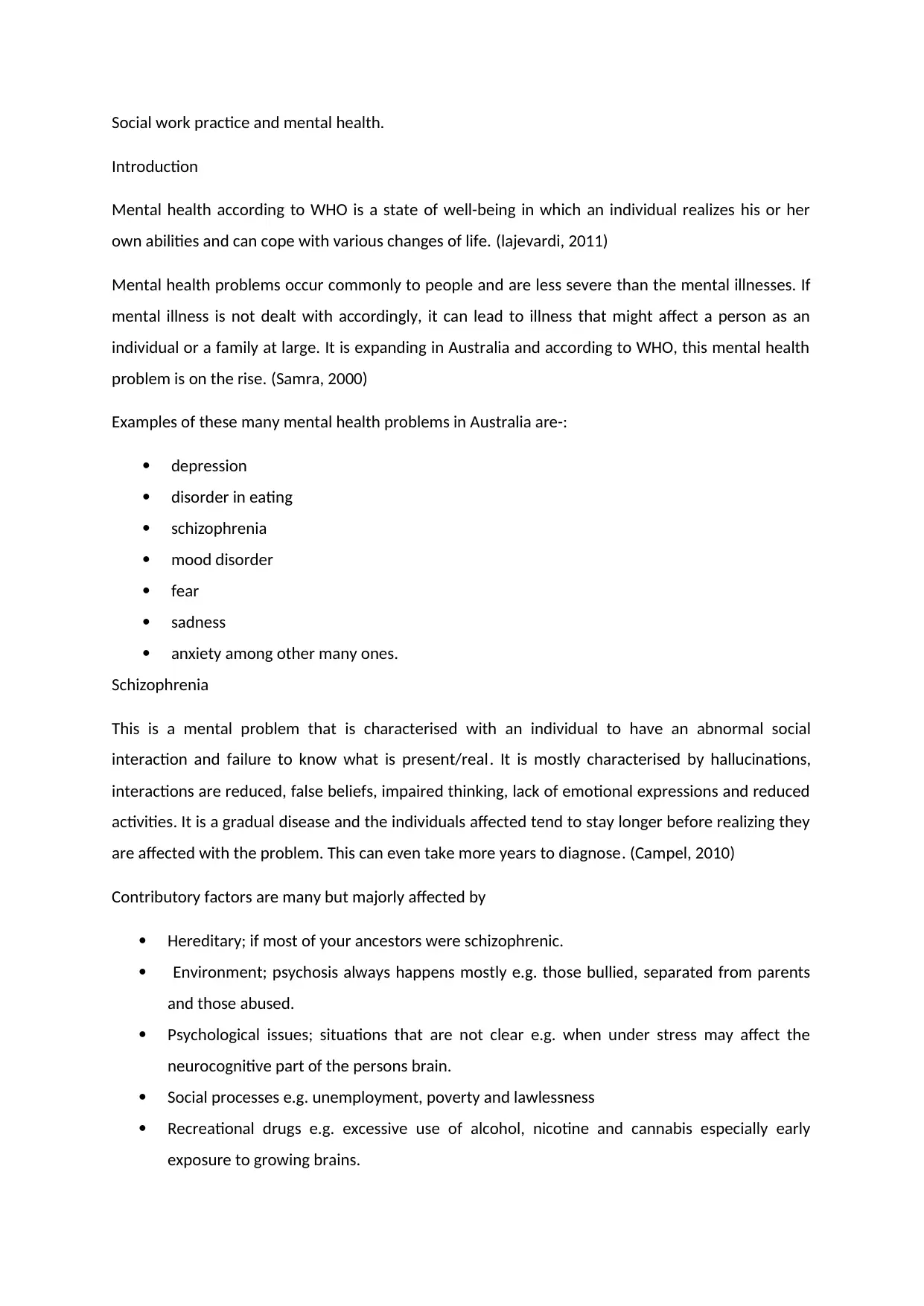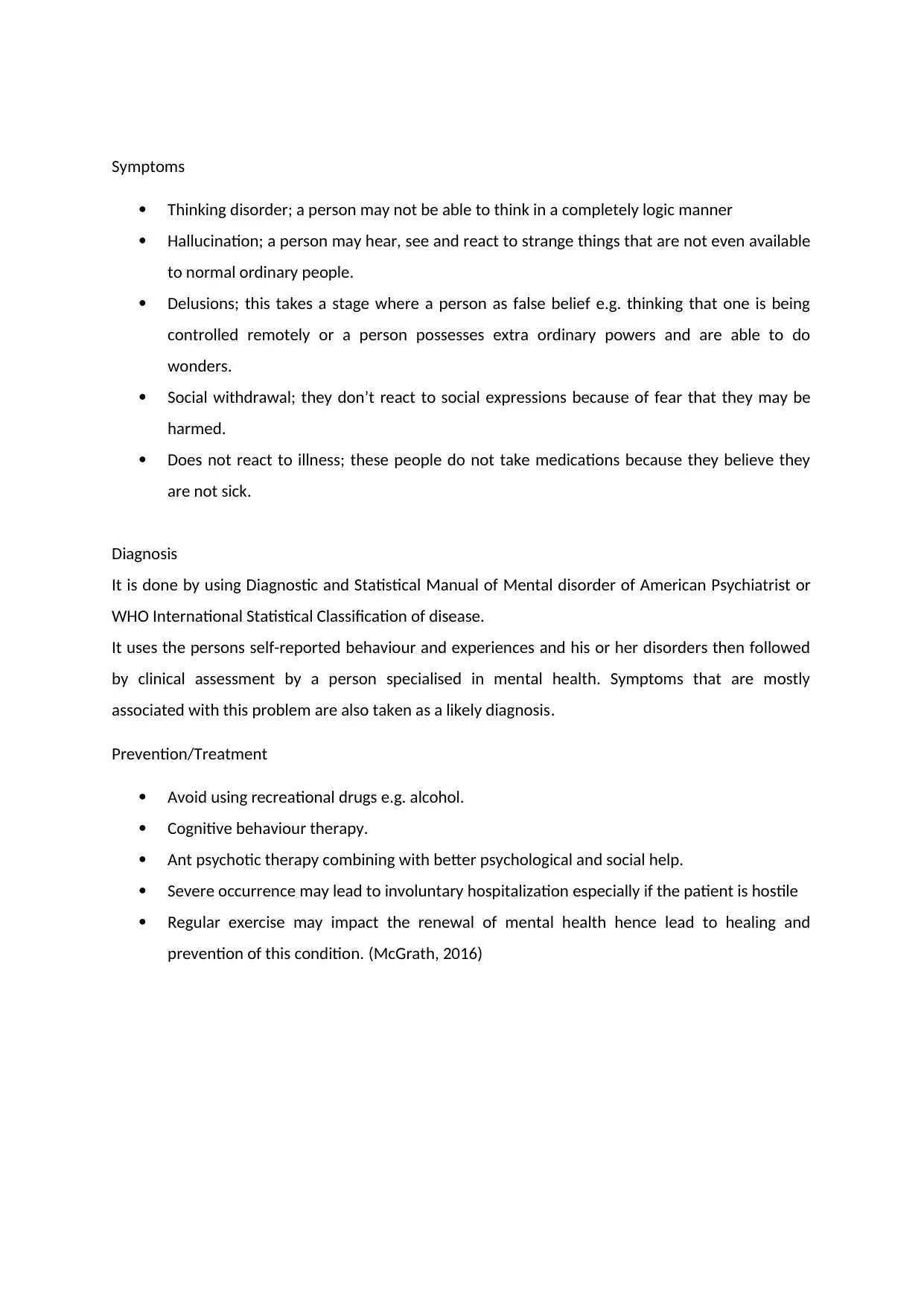Schizophrenia in Australia: A Mental Health Presentation & Social Work
VerifiedAdded on 2023/06/15
|3
|663
|320
Presentation
AI Summary
This presentation provides an overview of schizophrenia, a mental health problem characterized by abnormal social interaction and a disconnect from reality. It discusses the contributory factors such as heredity, environment, psychological issues, social processes, and recreational drugs. Key symptoms include thinking disorders, hallucinations, delusions, and social withdrawal. Diagnosis relies on the Diagnostic and Statistical Manual of Mental Disorders and clinical assessments. Treatment and prevention strategies involve avoiding recreational drugs, cognitive behavior therapy, antipsychotic therapy, and regular exercise. The presentation also touches on the potential need for involuntary hospitalization in severe cases. Desklib offers a platform to access this and many other student-contributed assignments.
1 out of 3










![[object Object]](/_next/static/media/star-bottom.7253800d.svg)